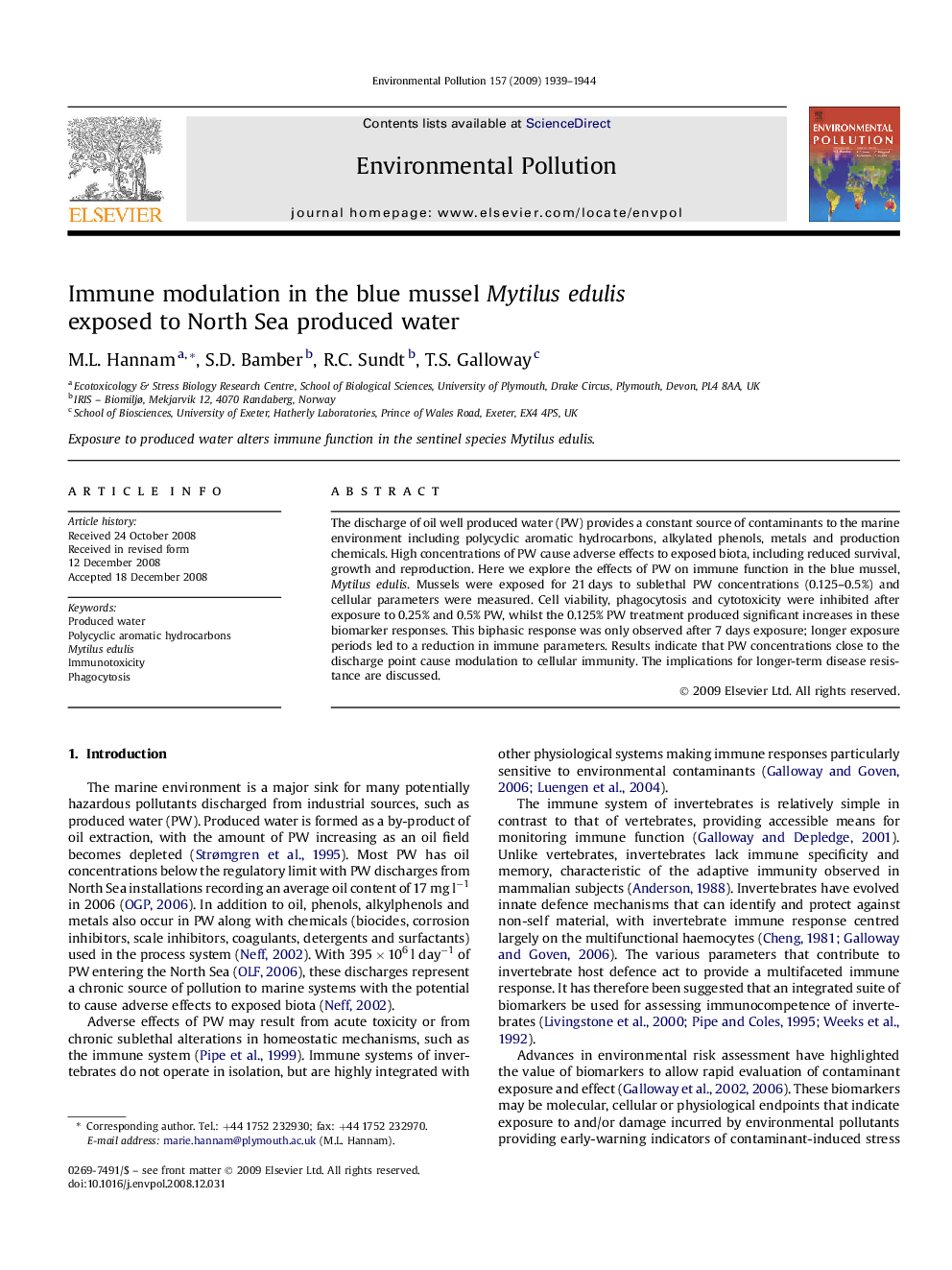| کد مقاله | کد نشریه | سال انتشار | مقاله انگلیسی | نسخه تمام متن |
|---|---|---|---|---|
| 4425559 | 1309107 | 2009 | 6 صفحه PDF | دانلود رایگان |

The discharge of oil well produced water (PW) provides a constant source of contaminants to the marine environment including polycyclic aromatic hydrocarbons, alkylated phenols, metals and production chemicals. High concentrations of PW cause adverse effects to exposed biota, including reduced survival, growth and reproduction. Here we explore the effects of PW on immune function in the blue mussel, Mytilus edulis. Mussels were exposed for 21 days to sublethal PW concentrations (0.125–0.5%) and cellular parameters were measured. Cell viability, phagocytosis and cytotoxicity were inhibited after exposure to 0.25% and 0.5% PW, whilst the 0.125% PW treatment produced significant increases in these biomarker responses. This biphasic response was only observed after 7 days exposure; longer exposure periods led to a reduction in immune parameters. Results indicate that PW concentrations close to the discharge point cause modulation to cellular immunity. The implications for longer-term disease resistance are discussed.
Journal: Environmental Pollution - Volume 157, Issue 6, June 2009, Pages 1939–1944